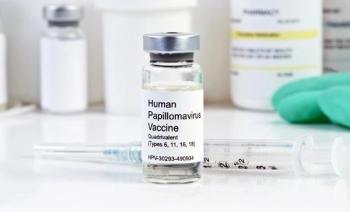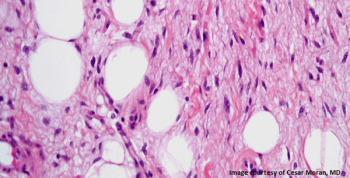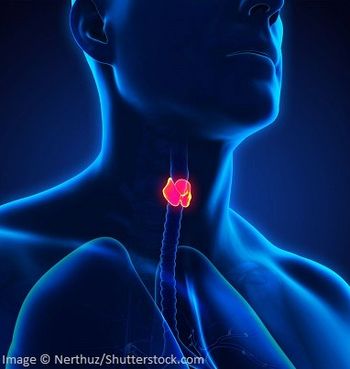
Prophylactic HPV vaccination significantly reduced vaccine-type oral HPV infections among young adults, according to the results of a cross-sectional study.

Your AI-Trained Oncology Knowledge Connection!


Prophylactic HPV vaccination significantly reduced vaccine-type oral HPV infections among young adults, according to the results of a cross-sectional study.

Improving oropharyngeal cancer survival rates necessitates better coordination of survivorship care between oncology teams and primary care providers, according to a presentation at ONS.

A new study is suggesting there may be an association with high tumor levels of the protein PD-L1 and head and neck disease recurrence.

Surgery followed by postoperative radiotherapy was associated with prolonged overall survival compared with concurrent chemoradiotherapy in patients with locally advanced oral cavity squamous cell carcinoma.

Oropharyngeal small-cell carcinoma was more likely to present as distant disease and was associated with worse survival outcomes compared with squamous cell carcinoma, according to new research.

This video reviews ongoing trials testing immunotherapy for patients with head and neck cancer.

In this video we discuss efforts to reduce treatment doses in order to lessen long-term side effects and improve quality of life among patients with head and neck cancers.

Head and neck cancer patients who have a human papillomavirus (HPV) infection detectable with a blood-based biomarker have a better prognosis compared with HPV-negative patients.

The US Food and Drug Administration (FDA) in record time has approved nivolumab (Opdivo) for the treatment of patients with recurrent or metastatic squamous cell carcinoma of the head and neck (SCCHN) with disease progression on or after a platinum-based therapy.

A study presented last month at ASTRO found that better radiation outcomes for head and neck cancer were associated with higher facility volume.

Chronic sinusitis is associated with three rare types of head and neck cancer, including nasopharyngeal cancer, HPV-related oropharyngeal cancer, and nasal cavity and paranasal sinus cancers.

A 45-year-old man presents with a mass in the right neck. After the biopsy is performed, what is your diagnosis?

Clinicians now have a new treatment option for patients with recurrent or metastatic head and neck squamous cell carcinoma.

In this Medical News Minute, developed exclusively for Cancer Network, Dr. Bobby Lazzara discusses the recent priority review of nivolumab for use in metastatic head and neck cancer.

In this interview we discuss a joint statement from MD Anderson and 68 other NCI-designated cancer centers that calls for increased HPV vaccination for the prevention of cancer.

In this interview, Theodoros Teknos, MD, discusses the results of his current phase I trial of vorinostat (Zolinza) in advanced head and neck cancer.

To date, there is still no strong evidence that induction chemotherapy improves outcomes for locally advanced head and neck cancer.

Selumetinib has received Orphan Drug Designation status by the US Food and Drug Administration to be used as an adjuvant treatment in patients with stage III or IV differentiated thyroid cancer.

Researchers at Boston University School of Medicine have identified a marker that can detect carcinoma-associated fibroblasts (CAFS) in oral cancer tissues.

Dental exams and procedures should occur before treatment begins for patients with head and neck cancer and other malignancies, and post-treatment dental follow-up care should be life-long for cancer survivors.

In this interview, we speak with Dr. Robert Ferris about the results from the CheckMate-141 study, which investigated the efficacy of nivolumab in head and neck cancer.

Immunotherapy treatment with nivolumab significantly improved survival among patients with recurrent or metastatic head and neck squamous cell carcinoma.

Undergoing surveillance with PET/CT resulted in similar survival to planned neck dissection in patients with squamous cell carcinoma of the head and neck with nodal disease who have completed chemoradiotherapy.

The combination of radiation therapy plus cetuximab had higher rates of acute toxicity among patients with locally advanced squamous cell carcinoma of the head and neck compared with radiation therapy plus cisplatin.

Compared to the general population, the rate of suicide is three times more frequent among head and neck cancer patients, according to a retrospective study.